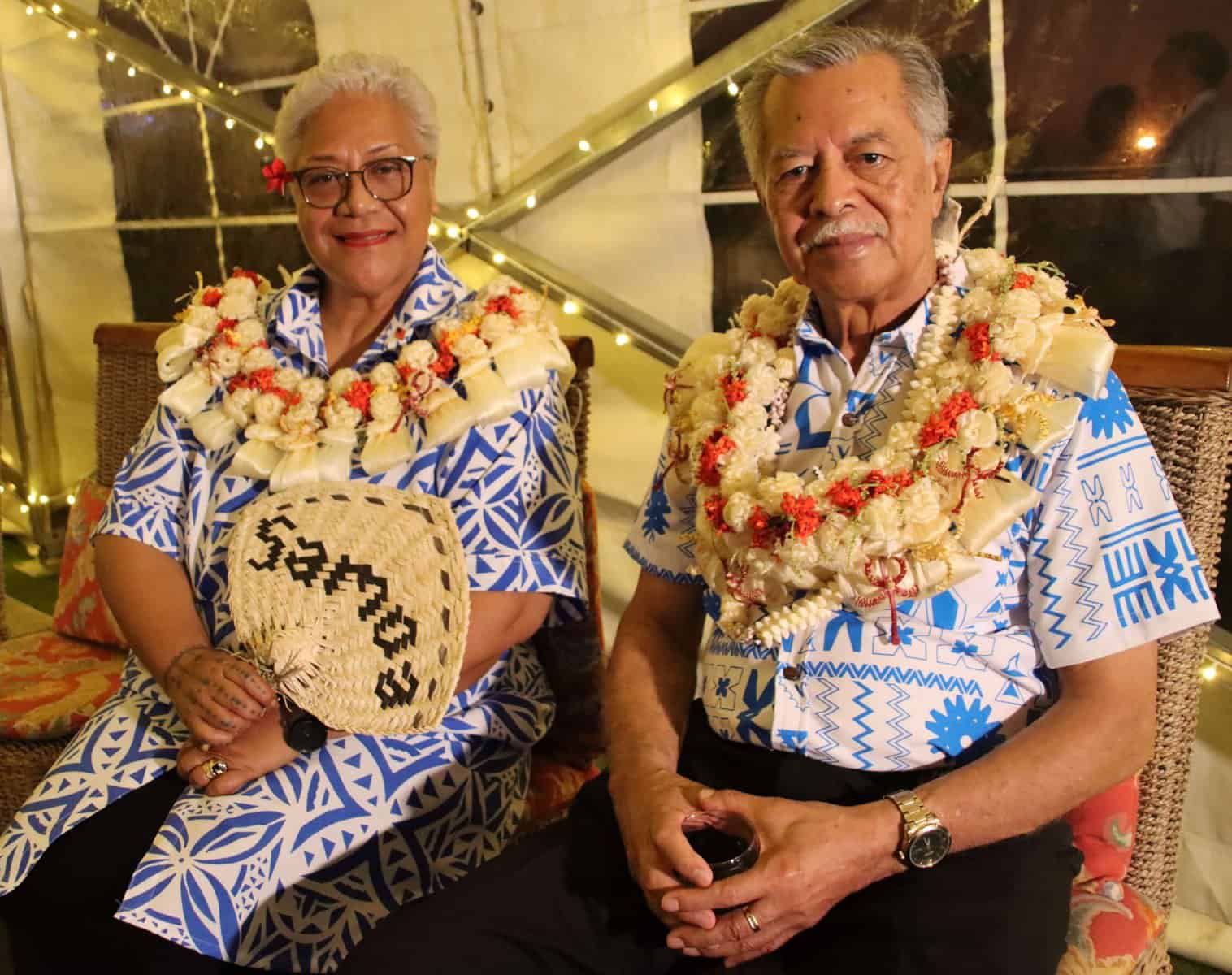Samoa’s Fiame Naomi Mata’afa is attending her first Pacific Islands Forum Leaders meeting as Prime Minister in Suva this week. As leaders gather for their retreat today, Islands Business contributor, Sera Tikotikovatu-Sefeti asked her about Samoa’s priorities.
IB: What are some urgent issues Samoa is bringing to the table in the discussions going on so far?
Fiame: The focus seems to be the 2050 Strategy, the leaders will have an opportunity to reflect on that during the retreat. I had actually hoped we had a bit more comprehensive dialogue, but it’s sort of filtering through in some of the dialogue, but not in any comprehensive sort of way, but hopefully during the retreat.
IB: Anything specific Samoa is hoping to talk about comprehensively?
Fiame: Well I think for all of us, because the region hasn’t met for a while this is very significant that we are able to meet. The issue was first and foremost the unity of the region bringing back the northern members. I think we are fairly successful in that, albeit Kiribati still remains outside, but we hope that they will come back to the fold and we need to understand what is happening with Kiribati.
IB: Madam, there is a lot of tussle around the geopolitics and geo-political influence in the Pacific. What’s Samoa’s take on that?
Fiame: You know the heat is not with us, the heat is with other people. So I think what is important for us is to be able to find the space, where we can take in what is happening and collectively come to some understandings and strategies of how we cope. This is nothing new to the Pacific, we’re always having to navigate around what other people are doing, so it’s what it is for the region but more importantly, we had this vehicle, the Pacific Island Forum, where we can all agree that we are much stronger as a collective than going on issues individually.
IB: What is Samoa’s stance on Kiribati’s concerns, particularly on Henry Puna’s term as Secretary General of the Pacific Islands Forum?
Well we came to an agreement with that. Under the ‘Suva Agreement’ it’s quite clear and transparent, so if they are not agreeable to that, well that’s their right. But a consensus first and foremost amongst the northern countries is that they have accepted that. I think we’ve come more than 50 percent, so as any negotiation I think there has been fairness on how to resolve the issues that the northerners felt. They felt that they were excluded, they felt they weren’t being treated in the right way, that it was their rotational expectation, so it’s all fair comment and I think the leaders in recognising the issues raised, have worked very hard to meet the concerns made by the northern members of the family.
IB: There are two issues that have not been included in the discussions so far, about the West-Papua case as well as China and US ?
Fiame: I think that is what the leaders retreat is all about, there are some issues you can do a public dialogue on, but there are some issues that require discretion and more in-depth discussion. SO I think it will be dealt with, but more in the context of the Leaders retreat.
IB: Madam, Madam, the issue of gender equality can sometimes be a sensitive subject for the leaders. What are your thoughts on Pacific women representation in leadership?
Fiame: Oh yeah, there is a leaders declaration that was done in 2012 in Cook Islands it had a lot to do generally you know. The whole issue of gender-equality more specifically with women in public life, like our sector, we are still not doing very well in the Pacific. I went to Rwanda for the Commonwealth meeting they have 60 percent or more women in there and that’s a country that has recognised human resource and it needs to be utilised they have a heavily weighted youth population like the Pacific. They recognise that, they have invested in it and equally also with women and they are a successful country, so we’ve got good models.
Has the issues identified from the Pacific Women Leaders Meeting being raised at the Pacific Leaders Meeting?
Well I know that the Fijian Minister was a bit disappointed at the last meeting, but I think it’s a true reflection once again of where gender situation is in the region. Plus it was a new introduction to the forum format, having women leaders as opposed to women ministers, because there’s quite a distinction. So there is a process for women ministers through SPC, because that’s the CROP agency that’s taking the lead on gender issues, but women leadership is a new thing in the Forum format so I think it needs tweaking.
